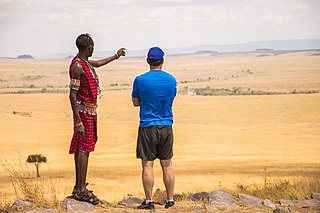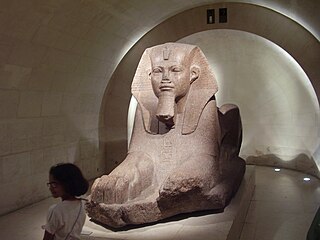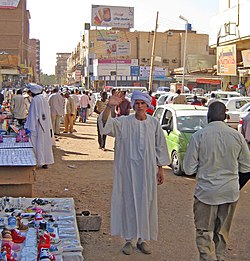
Tourism is travel for pleasure or business, and the commercial activity of providing and supporting such travel. The World Tourism Organization defines tourism more generally, in terms which go "beyond the common perception of tourism as being limited to holiday activity only", as people "travelling to and staying in places outside their usual environment for not more than one consecutive year for leisure and not less than 24 hours, business and other purposes". Tourism can be domestic or international, and international tourism has both incoming and outgoing implications on a country's balance of payments.

Ecotourism is a form of tourism marketed as "responsible" travel to natural areas, conserving the environment, and improving the well-being of the local people. The stated purpose may be to educate the traveler, to provide funds for ecological conservation, to directly benefit the economic development and political empowerment of local communities, or to foster respect for different cultures and human rights.

Travel is the movement of people between distant geographical locations. Travel can be done by foot, bicycle, automobile, train, boat, bus, airplane, ship or other means, with or without luggage, and can be one way or round trip. Travel can also include relatively short stays between successive movements, as in the case of tourism.

An expatriate is a person who resides outside their native country.

Culture shock is an experience a person may have when one moves to a cultural environment which is different from one's own; it is also the personal disorientation a person may feel when experiencing an unfamiliar way of life due to immigration or a visit to a new country, a move between social environments, or simply transition to another type of life. One of the most common causes of culture shock involves individuals in a foreign environment. Culture shock can be described as consisting of at least one of four distinct phases: honeymoon, negotiation, adjustment, and adaptation.

A student exchange program is a program in which students from a secondary school or higher education study abroad at one of their institution's partner institutions. A student exchange program may involve international travel, but does not necessarily require the student to study outside their home country.
Cultural diplomacy is a type of public diplomacy and soft power that includes the "exchange of ideas, information, art, language and other aspects of culture among nations and their peoples in order to foster mutual understanding". The purpose of cultural diplomacy is for the people of a foreign nation to develop an understanding of the nation's ideals and institutions in an effort to build broad support for economic and political objectives. In essence "cultural diplomacy reveals the soul of a nation", which in turn creates influence. Though often overlooked, public diplomacy has played an important role in achieving national security efforts.
Missionary’s kids are the children of missionary parents, and thus born or raised abroad. They form a subset of third culture kids (TCKs). The term is more specifically applied when these children return to their "home" or passport country, and often experience various difficulties identifying with fellow citizens and integrating "back" into their "home" culture. The resulting feeling is described as "reverse culture shock".

Shark tourism is a form of eco-tourism that allows people to dive with sharks in their natural environment. This benefits local shark populations by educating tourists and through funds raised by the shark tourism industry. Communities that previously relied on shark finning to make their livelihoods are able to make a larger profit from diving tours while protecting the local environment. People can get close to the sharks by free- or scuba diving or by entering the water in a protective cage for more aggressive species. Many of these dives are done by private companies and are often baited to ensure shark sightings, a practice which is highly controversial and under review in many areas.

Tourism in China is a growing industry that is becoming a significant part of the Chinese economy. The rate of tourism has expanded over the last few decades since the beginning of reform and opening-up. The emergence of a newly rich middle class and an easing of restrictions on movement by the Chinese authorities are both fueling this travel boom. China has become one of world's largest outbound tourist markets. According to Euromonitor International, economic growth and higher incomes in nearby Asian countries will help China to become the world's number one tourist destination by 2030.

Culinary tourism or food tourism or gastronomy tourism is the exploration of food as the purpose of tourism. It is considered a vital component of the tourism experience. Dining out is common among tourists and "food is believed to rank alongside climate, accommodation, and scenery" in importance to tourists.
Rural tourism is a tourism that focuses on actively participating in a rural lifestyle. It can be a variant of ecotourism. Many villages can facilitate tourism because many villagers are hospitable and eager to welcome or host visitors. Agriculture has become more mechanized and requires less manual labor. This trend is causing economic pressure on some villages, which in turn causes young people to move to urban areas. There is however, a segment of the urban population that is interested in visiting the rural areas and understanding the lifestyle.

Tourism in Kenya is the third largest source of foreign exchange revenue, following Diaspora remittances and agriculture. The Kenya Tourism Board is responsible for maintaining information about tourism in Kenya.
Third culture kids (TCK) or third culture individuals (TCI) are people who were raised in a culture other than their parents' or the culture of their country of nationality, and also live in a different environment during a significant part of their child development years. They typically are exposed to a greater volume and variety of cultural influences than those who grow up in one particular cultural setting. The term applies to both adults and children, as the term kid refers to the individual's formative or developmental years. However, for clarification, sometimes the term adult third culture kid (ATCK) is used.

Heritage commodification is the process by which cultural themes and expressions come to be evaluated primarily in terms of their exchange value, specifically within the context of cultural tourism. These cultural expressions and aspects of heritage become "cultural goods," transformed into commodities to be bought, sold and profited from in the heritage tourism industry. In the context of modern globalization, complex and often contradictory layers of meaning are produced in local societies, and the marketing of one's cultural expressions can degrade a particular culture while simultaneously assisting in its integration into the global economy. The repatriation of profits, or "leakage", that occurs with the influx of tourist capital into a heritage tourist site is a crucial part of any sustainable development that can be considered beneficial to local communities. Modern heritage tourism reproduces an economic dynamic that is dependent upon capital from tourists and corporations in creating sustained viability. Tourism is often directly tied to economic development, so many populations see globalization as providing increased access to vital medical services and important commodities.

Thinlas Chorol is a social entrepreneur and writer from Ladakh, India. She founded the Ladakhi Women's Travel Company and has written articles on tourism in Ladakh and other issues.

Workaway is a platform that allows members to arrange homestays and cultural exchange. Volunteers or "Workawayers", are expected to contribute a pre-agreed amount of time per day in exchange for lodging and food, which is provided by their host.
Experiential travel, also known as immersion travel, is a form of tourism in which people focus on experiencing a country, city or particular place by actively and meaningfully engaging with its history, people, culture, food and environment. It can often be transformative. Therewith the concept is based on very similar mechanisms as for example experiential education, experiential knowledge, experiential interior design, and experiential marketing.
International volunteering is when volunteers contribute their time to work for organisations or causes outside their home countries. International volunteering has a long association with international development, with the aim of bringing benefits to host communities.
Tourism impacts tourist destinations in both positive and negative ways, encompassing economic, political, socio-cultural, environmental, and psychological dimensions. The economic effects of tourism encompass improved tax revenue, personal income growth, enhanced living standards, and the creation of additional employment opportunities. Sociocultural impacts are associated with interactions between people with differing cultural backgrounds, attitudes and behaviors, and relationships to material goods. Tourism can also have significant political impacts by influencing government policies and promoting diplomatic relations between countries. Environmental impacts can be categorized as direct effects including environmental damage, wildlife destruction, deforestation, water pollution, and indirect effects, such as increased harvesting of natural resources to supply food, indirect air and water pollution. Tourism also has positive and negative health outcomes for local people. The short-term negative impacts of tourism on residents' health are related to the density of tourist's arrivals, the risk of disease transmission, road accidents, higher crime levels, as well as traffic congestion, crowding, and other stressful factors. In addition, residents can experience anxiety and depression related to their risk perceptions about mortality rates, food insecurity, contact with infected tourists, etc., which can result in negative mental health outcomes. At the same time, there are positive long-term impacts of tourism on residents' health and well-being outcomes through improving healthcare access positive emotions, novelty, and social interactions.













